 Myanmar
Myanmar
The demand for educational aid is increasing as the civil war has been long-lasting. We are working on school construction, library improvement, and reading promotion projects.
- TOP
- What We Do
- Myanmar
What We Do
We’re working on reading promotion and improving school environment projects.
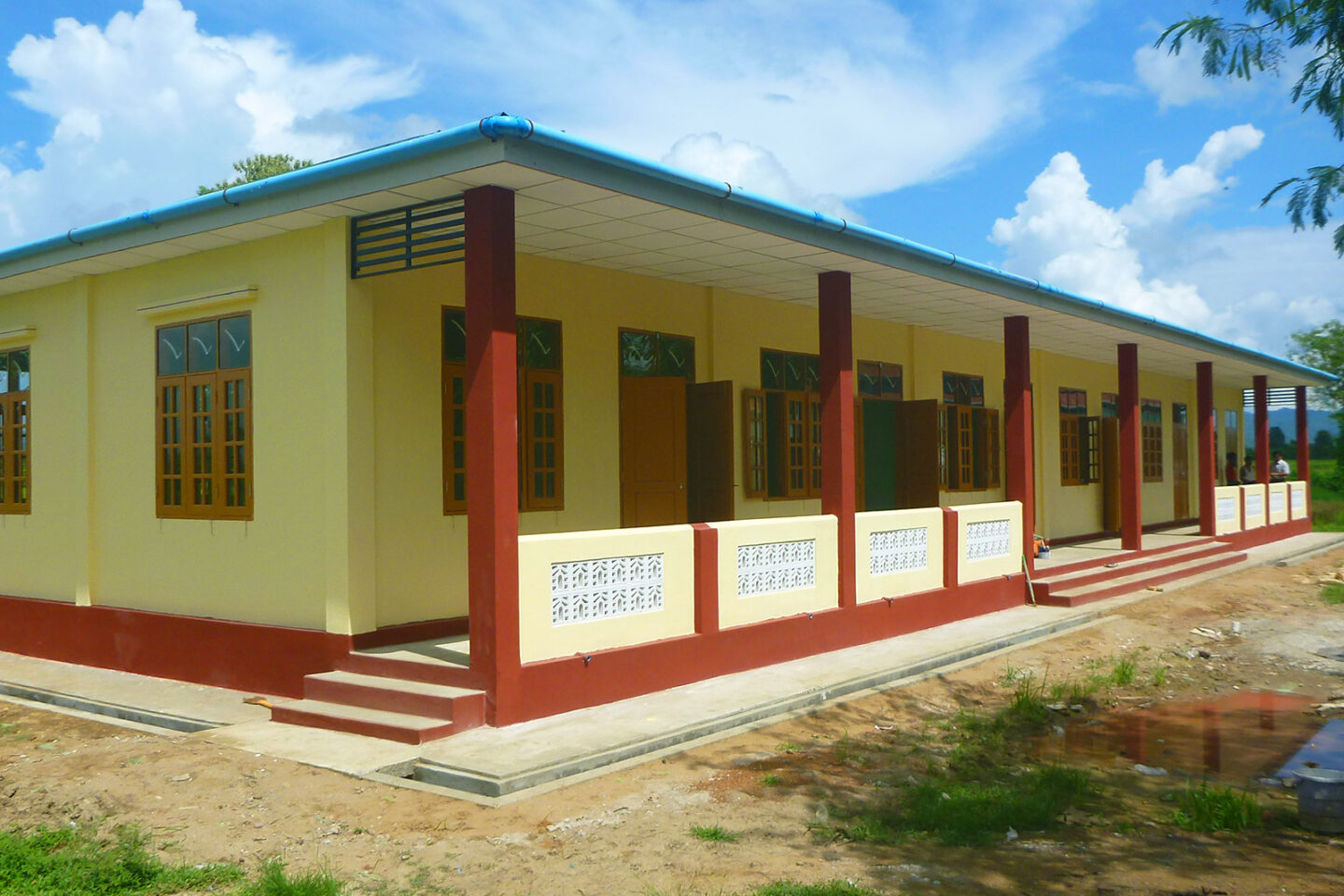
In Myanmar, aside from public schools, there are completely cost-free schools called monastic schools. The curriculum and school system conform to those of the public schools run by the Ministry of Education, and many children from economically disadvantaged households attend them. Public school education has also become free, allowing more children to attend school.
However, both monastic and public schools need to be renovated due to the deterioration of school buildings and a shortage of classrooms.
We implement a school construction program, set up book sections, distribute books, and provide teaching staff with training.
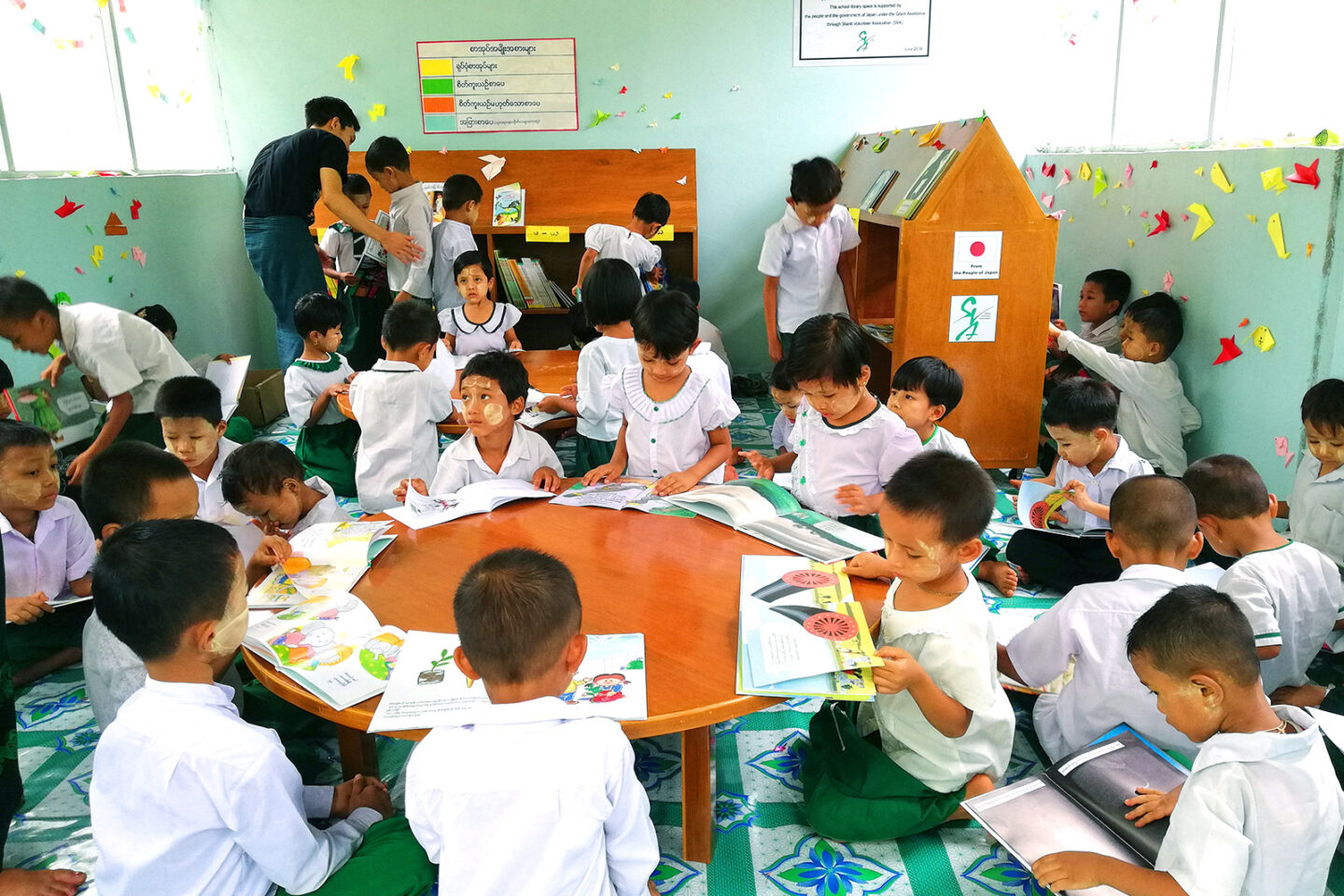
In Myanmar, where memorization-focused education has been the norm, large-scale educational reforms are currently underway, and the transition to child-centered education is moving forward.
For children to gain 21st-century skills such as critical thinking, which the reforms are aiming to achieve, we set up school libraries and provide training on utilizing children’s books and libraries.
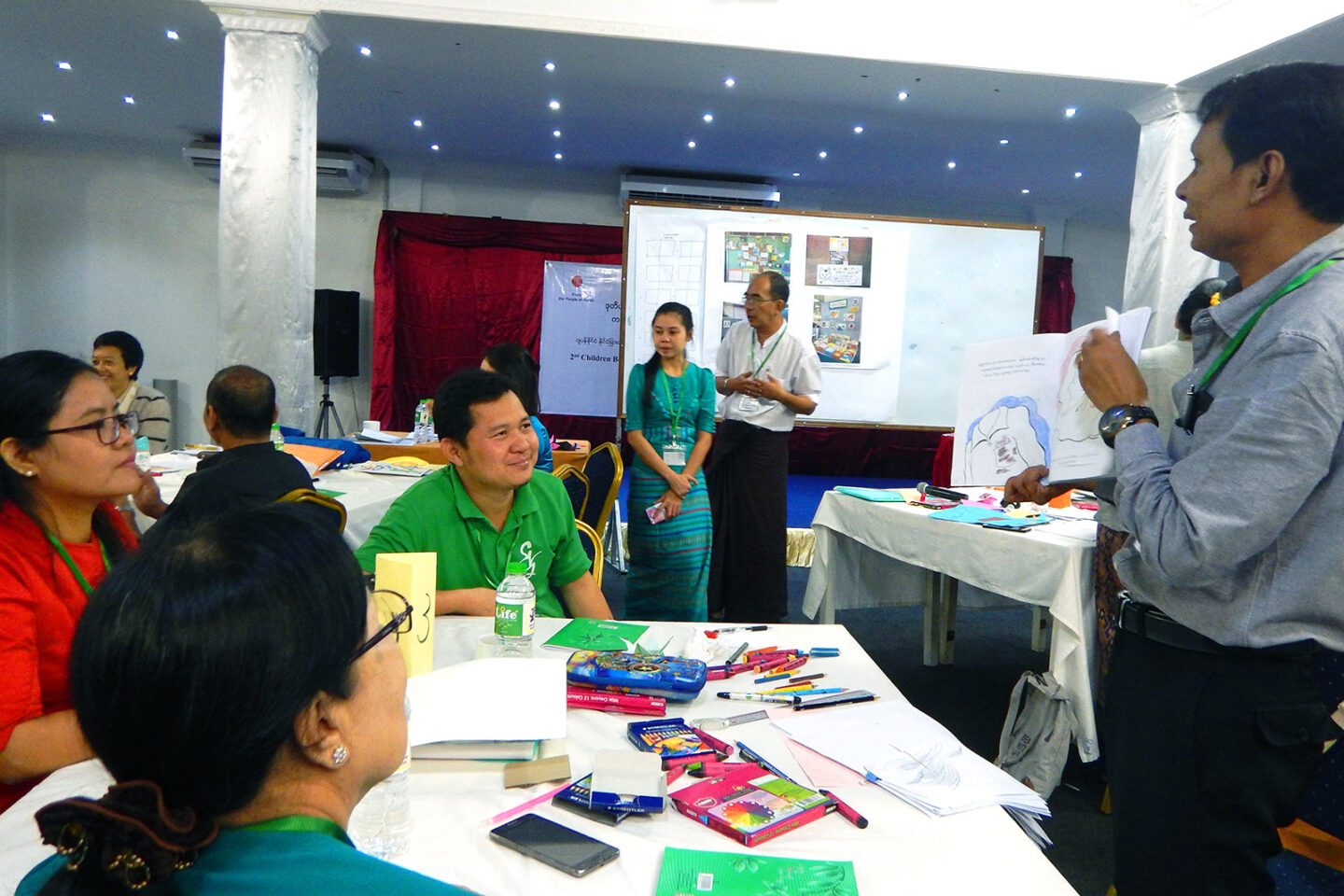
According to Myanmar’s Ministry of Information, there were only 82 children’s books out of 8,000 books (including magazines and comics) that were published in 2011. Although some books have comics and frontispieces, there are only a limited number of high-quality picture books.
To provide children with good-quality picture books, we have established the Children Book Publication Committee together with local writers, illustrators, and editors to publish picture books and paper theaters (KAMISHIBAI). Published picture books are distributed to public libraries and schools. We also work on human resource development by providing training in picture book publishing by experts.
Activities So Far
SVA develops projects by making use of its experience in reading promotion and library activities that it has accumulated in other countries since 2014.
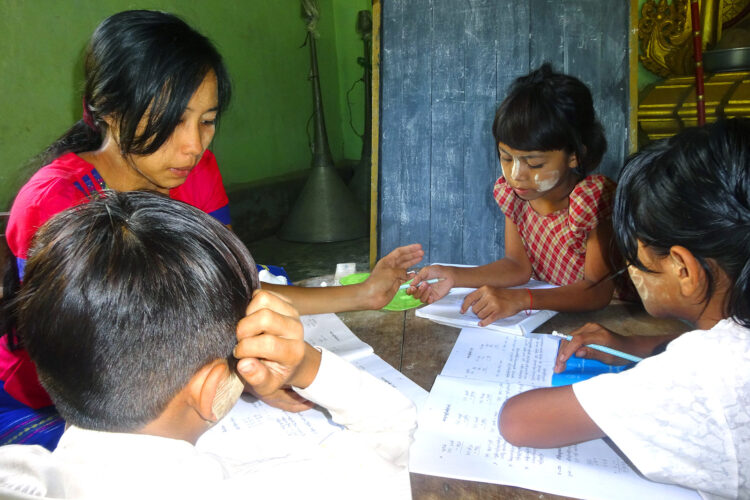
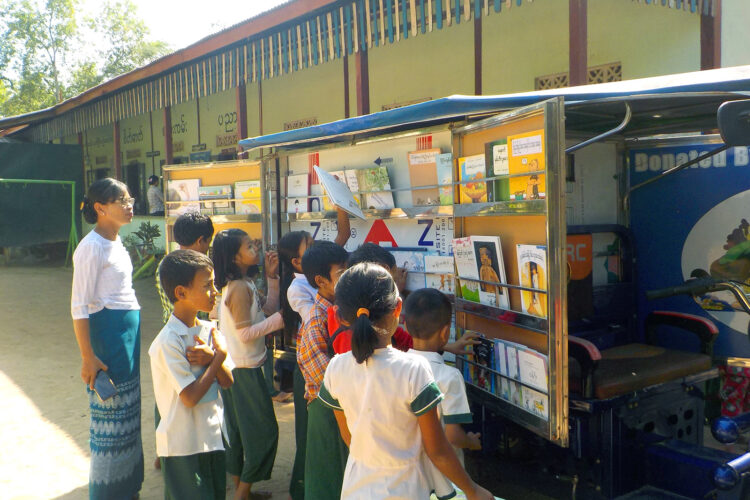
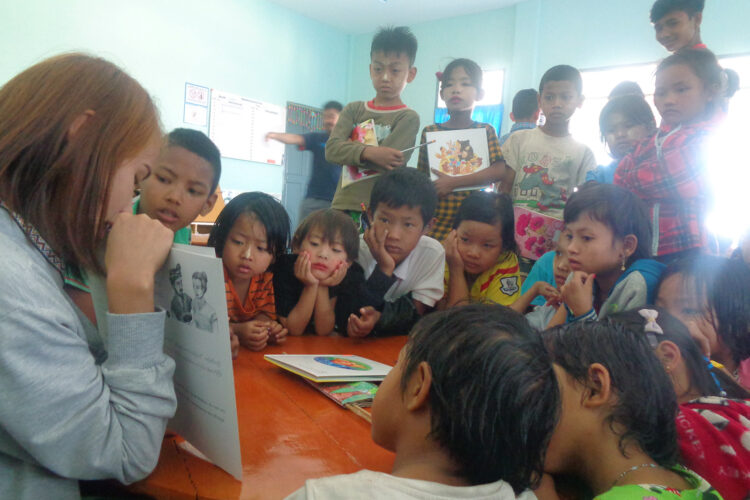
However, it was difficult for the returnees to gain the necessary information to start a new life, and the local residents in host areas also had difficulties accessing the information about the support from outside and about the returnees.

